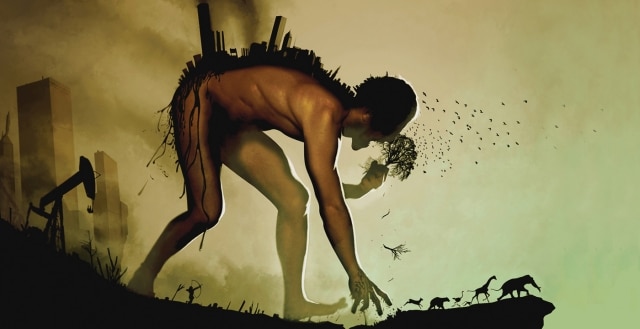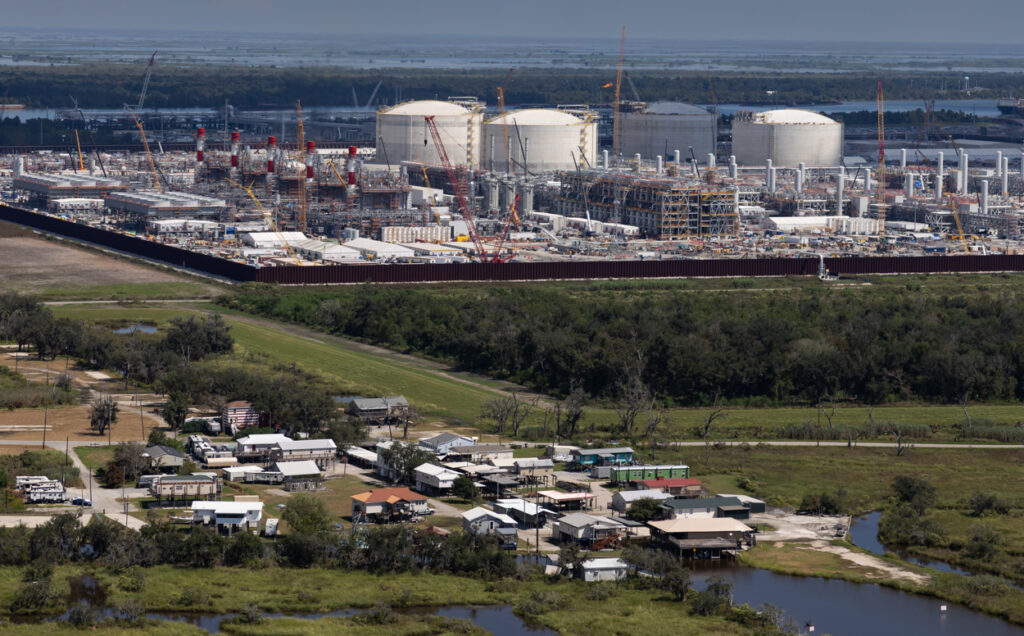By Christopher Wright, University of Sydney and Daniel Nyberg, University of Newcastle
The upcoming Paris climate talks in December this year have been characterised as humanity’s last chance to respond to climate change. Many hope that this time some form of international agreement will be reached, committing the world to significant reductions in greenhouse gas emissions.
And yet there are clear signs that the much-touted “solutions” of emissions reduction targets and market mechanisms are insufficient for what is required.
In our new book, Climate Change, Capitalism and Corporations: Processes of Creative Self-Destruction, we look at reasons why this has come about. We argue that businesses are locked in a cycle of exploiting the world’s resources in ever more creative ways.
Innovating environmental destruction
The disconnect between business and climate action was symbolised by the announcement earlier this year that a significant portion of funding for the Paris meeting comes from major fossil fuel companies and carbon emitters; a situation French climate officials admitted was financially unavoidable.
While perhaps unsurprising, this announcement hints at a deeper problem we now face — the global economic system of corporate capitalism appears incapable of achieving the levels of decarbonisation necessary to avoid dangerous climate change. Humanity is locked into a process of “creative self-destruction”.
Our economies are now reliant upon ever-more ingenious ways of exploiting the Earth’s fossil fuel reserves and consuming the very life-support systems we rely on for our survival. This is evident in the rush by some of the world’s largest companies to embrace deep-water and Arctic oil drilling, tar-sands processing, new mega-coalmines, and the “fracking” of shale and coal-seam gas. These examples highlight both the inventive genius of corporate capitalism, and the blindness of industry and government to the ecological catastrophe they are fashioning.
Incorporating critique
Our book shows how large corporations are able to continue engaging in increasingly environmentally exploitative behaviour by obscuring the link between endless economic growth and worsening environmental destruction. They achieve this by challenging perceptions of the climate crisis; invariably framing it as a topic of partisan debate rather than a serious social, economic, and political issue to be addressed. But, more importantly, by reinventing the daily ritual of “business as usual” as a perfectly normal and ecologically sound process.
Through the narrative of “green” capitalism, corporations and the market are portrayed as the best means of responding to the climate crisis. In this corporate imaginary, “green” products and services, increased “eco-efficiency”, and the ingenuity and technological mastery of business entrepreneurship will save us from catastrophe.
Lobbying and corporate political activity obstruct more meaningful proposals for emissions reductions.
Moreover, citizens are enrolled as constituents in corporate campaigns, and as consumers and “ecopreneurs” in the quest for “green consumption”. We are the brands we wear, the cars we drive, the products we buy; and we are comforted to find the future portrayed as “safely” in the hands of the market.
The sparkling image of corporate environmentalism and business sustainability promises no conflicts and no trade-offs. Here, it is possible to address climate change while continuing the current global expansion of consumption; there is no contradiction between material affluence and environmental well being.
In proposing that corporate initiatives are enough, such a vision also fits well within neoliberalism – the dominant economic and political system of our time. Alternatives, such as state regulation and mandatory restrictions on fossil fuel use, are viewed as counterproductive and even harmful. It seems there is no alternative to the market.
Echoing Fredric Jameson, “it is easier to imagine the end of the world than the end of capitalism”.
Business as usual
So this is how the environmental destruction built into our economic system is concealed. Dealing with this epic contradiction of capitalism would require material trade-offs that challenge identities and interests.
This is why the alternative to “business as usual” is much harder to imagine and much easier to dismiss as the enemy of social well being – what critics so often characterise as going back to living in caves or a return to the “dark ages”.
Such is the supremacy of our current capitalist imagery that it exacts a powerful grip on our thinking and actions. It is a grip strengthened by the promotion of every new “green” product, a grip tightened through the establishment of sustainability functions in business and government, a grip defended with every “offset” we purchase for a flight to a holiday destination.
Ultimately, the “success” or otherwise of the Paris climate talks appears unlikely to challenge the fundamental dynamics underlying the climate crisis. Dramatic decarbonisation based around limits upon consumption, economic growth, and corporate influence are not open for discussion.
Rather, global elites have framed the response around an accentuation of these trends. Until this changes, the dominance of corporate capitalism will ensure the continued rapid unravelling of our habitable climate.
Christopher Wright, Professor of Organisational Studies, University of Sydney and Daniel Nyberg, Professor of Management, Newcastle Business School, University of Newcastle
This article was originally published on The Conversation. Read the original article. Image by artist Theodore Bohla, which features on the book cover.
Subscribe to our newsletter
Stay up to date with DeSmog news and alerts







